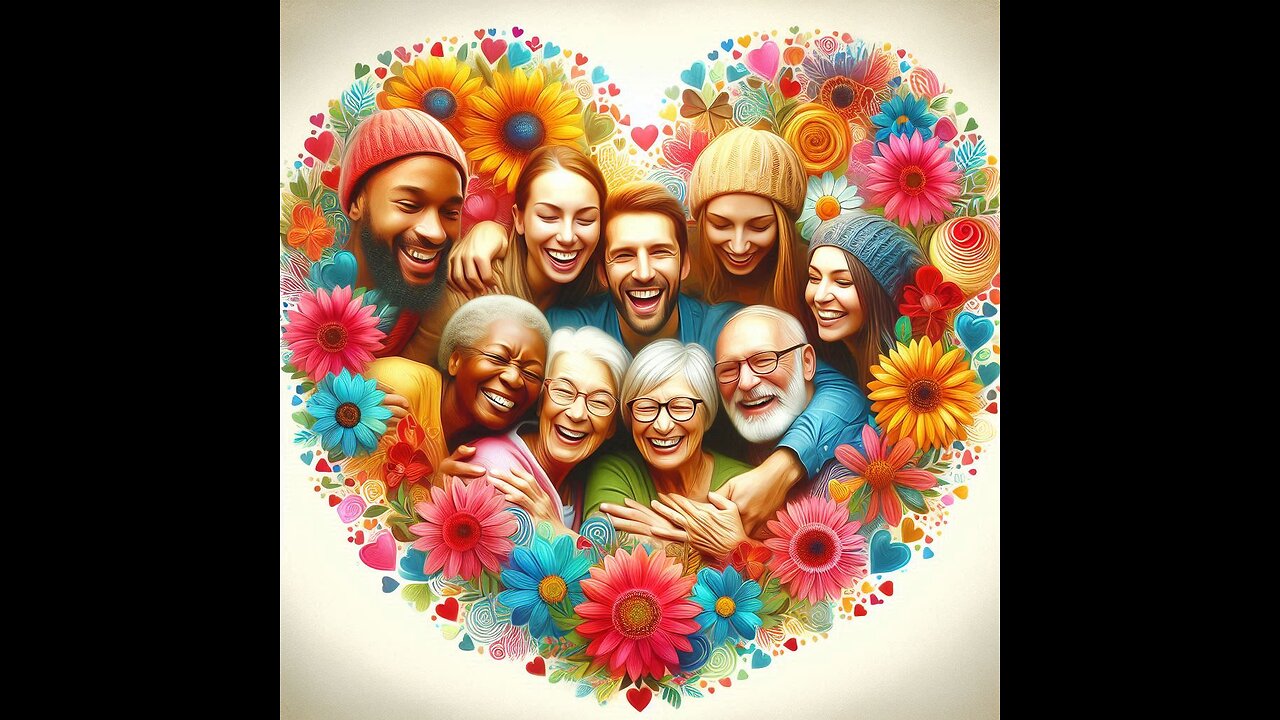Premium Only Content

Love and Attachment
Hi everyone! Today, we're diving into a fascinating topic that shapes so much of who we are—the psychology of love and attachment. Have you ever wondered why you feel so connected to certain people, or why relationships can be so rewarding yet challenging? Well, psychology has some intriguing answers.
Love – More Than Just a Feeling
Let’s start with love. Love isn’t just a magical feeling; it’s deeply rooted in biology and psychology. According to psychologists, love can be broken into three components: intimacy, passion, and commitment.
Intimacy is the emotional closeness you feel with someone—like sharing your thoughts, dreams, and fears.
Passion is that physical attraction or chemistry, and commitment is the decision to stick together through thick and thin. A healthy relationship usually balances all three.*
But why do we even fall in love?
Well, you can thank your brain! When we’re in love, our brain releases chemicals like dopamine, oxytocin, and serotonin.
Dopamine makes us feel pleasure.
Oxytocin strengthens bonds.
Serotonin gives us that head-over-heels feeling.
Attachment – The Blueprint for Relationships
Now, let’s talk about attachment.
Attachment theory, introduced by psychologist John Bowlby, explains how the bonds we form as children shape our adult relationships.
There are three main attachment styles: secure, anxious, and avoidant.
Secure attachment:
If you had a dependable caregiver growing up, you’re likely to trust others and form healthy relationships.
- *Anxious attachment: If your caregiver was inconsistent, you might fear rejection and crave reassurance in relationships.*
- Avoidant attachment: If your needs weren’t met, you might struggle to trust and avoid emotional intimacy.
But here’s the good news—attachment styles aren’t set in stone.
With self-awareness and effort, you can work towards building a secure attachment style.
Why Love and Attachment Matter
So, why does this all matter?
Love and attachment influence not just romantic relationships but friendships, family bonds, and even how we view ourselves.
Understanding these concepts can help us communicate better, set healthy boundaries, and form deeper connections with others.
And it’s okay if relationships aren’t always perfect—they’re a journey, not a destination. What matters most is the effort we put into understanding ourselves and the people we care about.
So, that’s a little dive into the psychology of love and attachment!
What are your thoughts? Have you noticed how these concepts play out in your own life? Let me know in the comments—I’d love to hear your stories.
This is me Jaya Prakash your new friend from India
-
 LIVE
LIVE
The Shannon Joy Show
3 hours agoCOVID Not A ‘Lab Leak’, It Was Created At UNC Chapel Hill! LIVE - Exclusive With Dr. David Martin
293 watching -
 LIVE
LIVE
LFA TV
5 hours agoLFA TV ALL DAY STREAM - THURSDAY 9/4/25
4,236 watching -
 LIVE
LIVE
Grant Stinchfield
1 hour agoGas Prices Broke Him – Newsom Quits the Fight!
189 watching -
 LIVE
LIVE
Trumpet Daily
59 minutes agoTrumpet Daily LIVE | Sept. 4, 2025
425 watching -
 1:01:50
1:01:50
VINCE
3 hours agoEpstein Victims Have Come Forth, The Names Have Not | Episode 118 - 09/04/25
171K112 -
 2:03:44
2:03:44
Badlands Media
7 hours agoBadlands Daily: September 4, 2025
51.3K7 -
 1:40:33
1:40:33
Dear America
4 hours agoEpstein Victims Vow To EXPOSE Everyone! + Are China and Russia Planning Against Trump?!
115K57 -
 LIVE
LIVE
Law&Crime
4 hours ago $2.12 earnedLIVE: Adelson Matriarch Murder Trial — FL v. Donna Adelson — Day 9
201 watching -
 1:15:40
1:15:40
The Big Mig™
2 hours agoCartels Are On Borrowed Time, Here Comes The BOOM!
22.3K15 -
 3:18:33
3:18:33
Matt Kohrs
13 hours agoMASSIVE Market Swings Incoming! || Top Futures & Options Trading Show
43.2K2